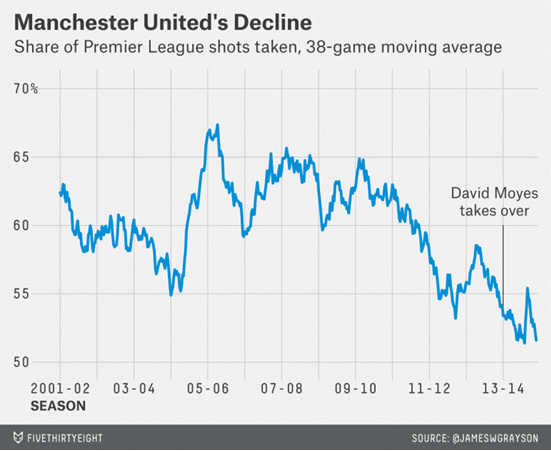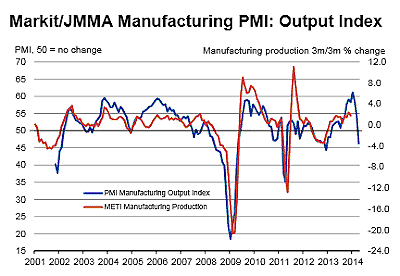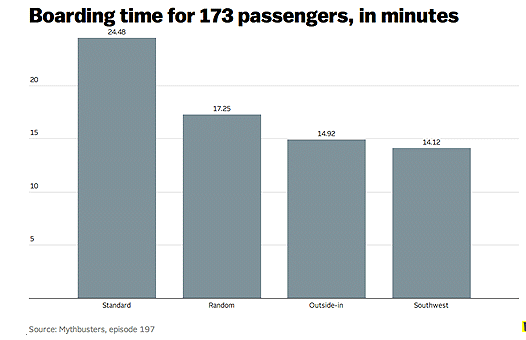
Today's Top 10 is a guest post from Kirdan Lees, a senior economist at the New Zealand Institute of Economic Research. This is his first Top 10.
As always, we welcome your additions in the comments below or via email to david.chaston@interest.co.nz. And if you're interested in contributing the occasional Top 10 yourself, contact gareth.vaughan@interest.co.nz.
See all previous Top 10s here.

1. Praise for the data geeks
Turns out measuring savings in the national accounts is not straightforward and really, really important for assessing imbalances. This article from the FT shows the UK experience in adopting the most recent standards is pretty dramatic adding “between 3 and 6 percentage points to the UK’s savings rate each year between 1997 and 2010”. Will be interesting to see how these changes influence New Zealand’s savings rate in years to come.
The Office for National Statistics, the UK’s statistical agency, announced that the adoption of the global system of national accounts would increase Britain’s measured savings rate by two to four times the equivalent change in the US.
Many countries are implementing the 2008 System of National Accounts this year, which will increase national income by recognising research, development and weapons expenditure as part of gross domestic product rather than a cost of business. The US introduced the accounting changes last year.
2. The grass really is greener…
Local planning can be pretty fraught and the debate can get supercharged at times. The UK provides some lessons and the Observer reports on one extreme of planning and housing shortages: 2 million more homes anyone? Jamie Doward at the Observer describes the detailed spatial work of Paul Cheshire at the LSE.
More of Surrey is now devoted to golf courses than housing, according to provocative new research that claims to dispel many of the myths associated with Britain's housing boom.
A study by the Centre for Economic Performance at LSE suggests soaring house prices are not caused by an influx of foreign buyers but are down to restrictive planning policies that have ensured the country's green belt is a form of "discriminatory zoning, keeping the urban unwashed out of the home counties”.
Cheshire calculates that, between 1994 and 2012, building fell short of what was needed by between 1.6m and 2.3m houses.

3. Economist as rockstar
Things on the interweb are getting out of hand. Way out of hand. First we had the rockstar economy (at NZIER we switched the label on the swear jar from greenshoots just last week). Now we have the rockstar economist. Like or loathe his work, Thomas Piketty is starting to make the Beatles look just not that popular. Well, maybe Neil Young in the early 80s anyway. This story focuses at the Chronicle of Higher Education focuses on the sensation rather than just the economics.
On Monday, Piketty’s stops included the White House Council of Economic Advisers, the Government Accountability Office, and the office of the Treasury secretary, Jacob Lew, who summoned him for a private sit-down to discuss his proposal for a progressive tax on wealth. On Tuesday, he appeared in the company of Nobelists: George Akerlof, who, introducing Piketty to a group at the International Monetary Fund, declared that he had "entered rock stardom—economist-style"; and Robert Solow, who, at the Economic Policy Institute, where a crowd of several hundred had braved a freezing downpour to hear Piketty talk, praised the originality of his argument and the "sheer collection, presentation, and analysis" of his data, predicting that "we’re going to be digesting that for a long time."

4. IMF on Asia: risks from the outside down risks from within up
Every time I read the FT on China I shudder. Lots of downbeat stories about the coming shock on top of a weaker growth outlook. The IMF’s recent regional outlook is not exactly upbeat but not breaking out the valium either. The IMF point out that while shocks from within have increased – China and getting the third leg of the Abe reform treble to come in- external risks are down. A lot of content but rewarding for the big picture on Asia.

Asia also faces several risks originating from within the region. A sharper-than-envisaged slowdown in China—due to financial sector vulnerabilities and the temporary cost of reforms along the transition toward a more sustainable growth path—would have significant adverse regional spillovers. In Japan, there is a possibility that Abenomics-related measures could prove less effective in boosting growth than envisaged unless strongly supported by structural reforms. Domestic and global political tensions could also create trade disruptions and weaken investment and growth across the region. In some frontier economies, high credit growth has led to rising external and domestic vulnerabilities.

5. Central bank hiking club
Until recently, New Zealand’s recovery had been pretty muted with interest rates on hold for longer than most punters – with the exception of NZIER – predicted. The RBNZ persistently forecast interest rate rises that never (or at least almost never) materialised. Take a look, the MPS for June 2011 has the ninety day rate clocking in at 5 percent in March 2014.
Turns out they were keeping pretty good company. Brad de Long briefly discusses the Fed forecasts over a similar period – we’ll raise interest rates – but always in two years’ time:
It does all hinge on how rapidly our cyclical unemployment is turning into structural unemployment. If it is–if those out the labor force are never coming back and will never downward pressure on the inflation rate–then this time is in different, and we are likely to see the Federal Reserve raising short-term safe interest rates to 2% per year by early in 2017.

6. Razing Amazonia?
The boom in online transactions has worked its way through the US and most of the world. A bunch of researchers at Ohio State University tackle quantifying the impact of local online taxes that in practice impact mostly on Amazon in the US case. Their findings – sales taxes reduce demand significantly, particularly on large purchases that get pushed to other online retailer and brick and mortar retailers.
Using transaction-level data of 1.4 million households, we identify the effects of Amazon Taxes on the purchasing behavior of residents living in five states that adopted such laws over 2012–2013. We find that Amazon sales fall by 9.5% after implementation of an Amazon Tax, corresponding to an elasticity of –1.3. We find the effect to be more concentrated in large purchases, such as those over $300. For this subset of purchases, we find that Amazon sales fall by 23.8% after implementation of the Amazon Tax, corresponding to an elasticity of –3.2. In addition to reductions in the dollar amounts of Amazon spending, we find a statistically significant reduction in the probability and frequency of Amazon spending.
They present a bunch of online examples that show trades designed to evade/avoid sales tax.

7. Man U were rubbish under Moyes but the decline predated his arrival
The sacking of David Moyes captured many fans not just in football but sport more broadly. The fall from grace came from a really poor season. The guys at 538 run the numbers to show the rot set in before Moyes took over – he was rubbish and got unlucky.
Manchester United fired manager David Moyes with four matches left in the English Premier League season, the club announced on Tuesday. His removal — after only 10 months on the job — left Moyes more than 25 seasons shy of the tenure of his predecessor, Sir Alex Ferguson. Going by results, that’s understandable: Ferguson’s United sides won England’s top league 13 times, while United under Moyes was languishing at seventh in the league, eliminated from the lucrative, Europe-wide Champions League for the coming season.

8. Feeling the heat on rents? Move to Singapore
Many global cities, London, Washington, San Francisco are suffering from acute housing crises with rents rising at least as fast as housing prices. One city that bucks the trend is Singapore – even though land is extremely scarce. The New York Times takes a closer looks at the drivers.
Anyone in the market for a luxury apartment in Hong Kong, London or Washington toward the end of last year was in luck. The rents on prime flats were sagging a bit. Billionaires could lock in leases on pieds-à-terre at a slight discount. You might suppose that those savings would trickle down to regular working Joes, but no — middle-market rents in those cities continued their apparently inexorable upward march.

9. Ouch! Mike "Mish" Shedlock takes a swing as Abe economics turns for the worse
Mish Shedlock has been making calls on the global outlook for a long while now. He is less than impressed with the big tick down in Japan’s manufacturing index. Next stop, further declines in the Yen?
Abenomics said Japanese stimulus efforts would offset tax hikes. I disagreed. Although one month is not proof, Markit reports Japanese Output and New Orders Decline For First Time in 14 Months Following Tax Hike
One month does not present a complete picture. However, Abenomics has so far resulted in a declining Japanese balance of trade, inflation (foolishly wanted), little to no increase in exports, and soaring import costs (especially food and energy).

10. One for Chris Luxon?
A soaring share price attests that Air New Zealand really know their stuff – shaving operating costs before deploying a quality product domestically and on a range of well selected markets. But Joseph Stromberg at vox has suggested how to save time getting everyone on board. Herding cats anyone?
Most US airlines follow the same procedure for allowing non-first-class passengers to board a plane. They let people who are sitting in the back board first, then people in the next few rows, gradually working their way toward the front.
The fastest ways to board a plane are Southwest's boarding method — where people choose their own seats — or a theoretical boarding method known as the "Steffen method" that's not currently in use.

7 Comments
#8 Should there be an article link here?
#1 New Zealand is rather well known for underspending on R & D compared to other countries so I'd expect less of a boost.
10. I would be happy to proof read for a fee. The first two sentences are a mess. I think the first should read, "attests to the fact that.." and in the second the verb tense is wrong, "suggests" should be suggested. But worst of all, the third sentence where "hearding" should be herding.
With this many errors in an extremely short paragraph - how are we to take anything this economist says seriously?
I note the corrections now made!
You're welcome.
Isn't a lot of what Thomas Piketty has been saying what Michael Hudson has talked about for at least a decade?
Sales taxes aren't reducing demand when the sales tax is applied to everyone, they remove a redirection demand.
If you have a 10% sales tax, and you can choose between you local store where you pay the tax, or amazon where you don't, more people are going to choose Amazon to avoid the tax.
If Amazon suddenly has to pay the sales tax too, you have a level playing field and some of those Amazon shoppers will switch back to the convenience of brick-and-mortor as the cost savings is gone. (of course there will be a fractional overall reduction in demand, as costs have done up some people wont purchase, but that's just they way with sales taxes).
Regarding the photo on item #8 could this be a vision of Auckland in the 22nd century, where the politicians will still be claiming that increased immigration is still the only solution to NZ's economic problems.
At the end of the day the 'Rockstar' economy that is showing signs of 'greenshoots' will experience a paradigm shift if interest rates continue to increase, with downside risk for a sustainable recovery. (how many gold coins in the swear jar?).
We welcome your comments below. If you are not already registered, please register to comment
Remember we welcome robust, respectful and insightful debate. We don't welcome abusive or defamatory comments and will de-register those repeatedly making such comments. Our current comment policy is here.